The 1,000-HP Electric Tesla Semi Truck Is The Baddest Big Rig Ever
These super-sleek beauties are hitting the highways in 2019.
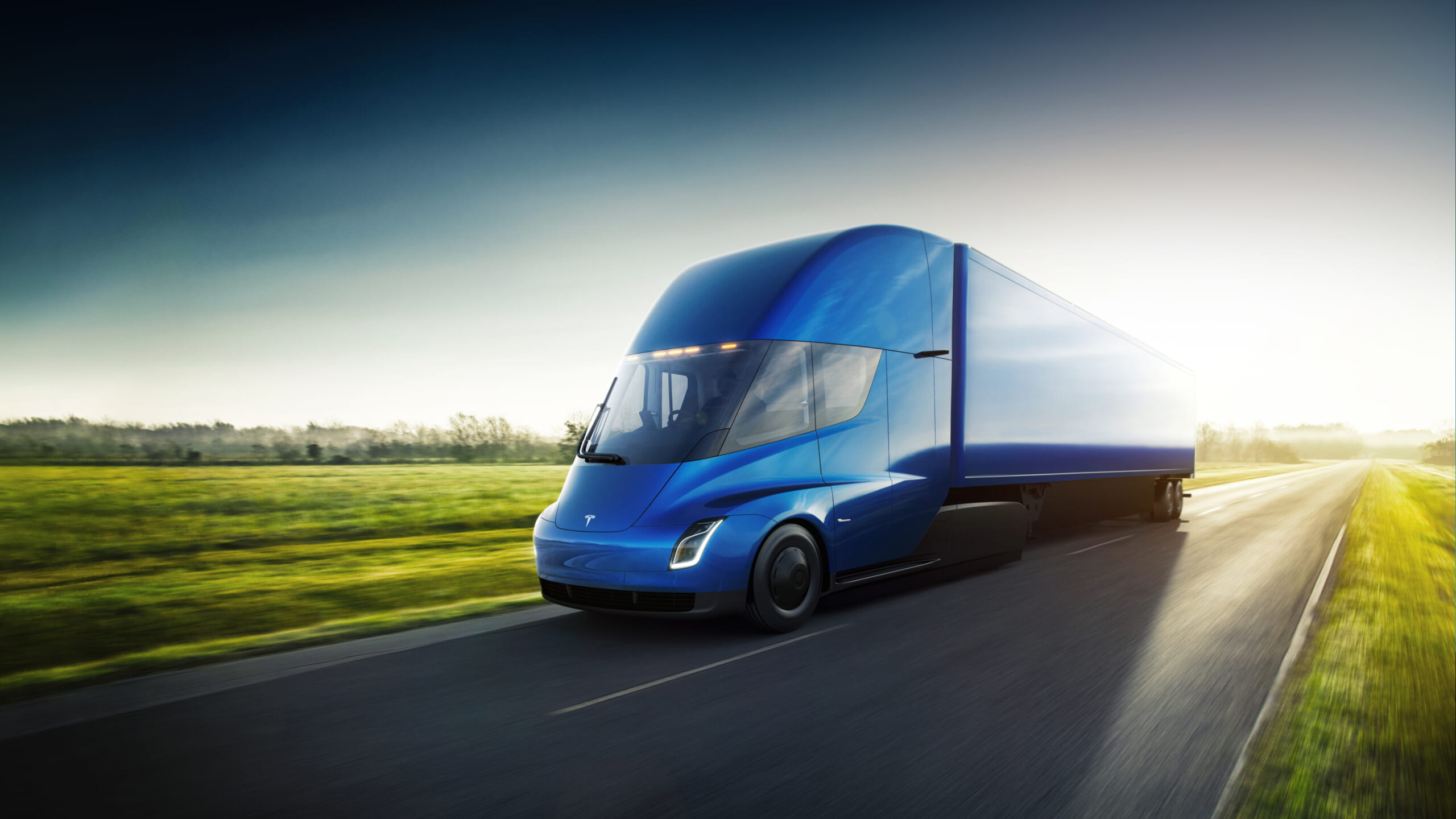
Forget what you know about big highway tractors, that they are sluggish, loud and dirty. If Tesla Motors succeeds in popularizing its new Tesla Semi, trucks can become surprisingly quick, quiet and clean (depending on the method of generating their electricity).
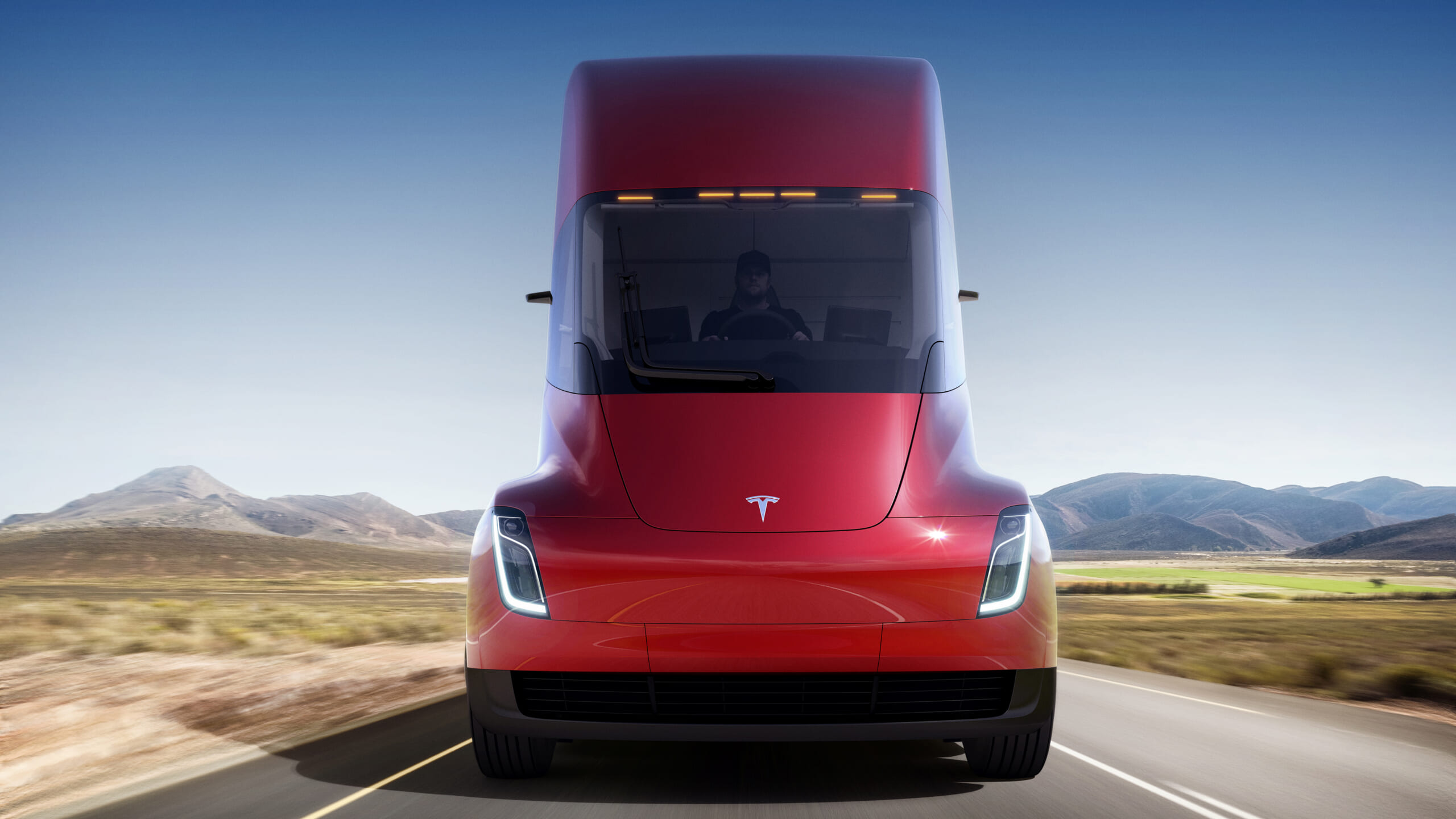
Tesla boss Elon Musk promises an astounding 0-60 acceleration time for the 1,000 HP bob-tail (trucker jargon for “no trailer”) Semi of just 5.0 seconds, compared to 15 seconds for a typical diesel truck.
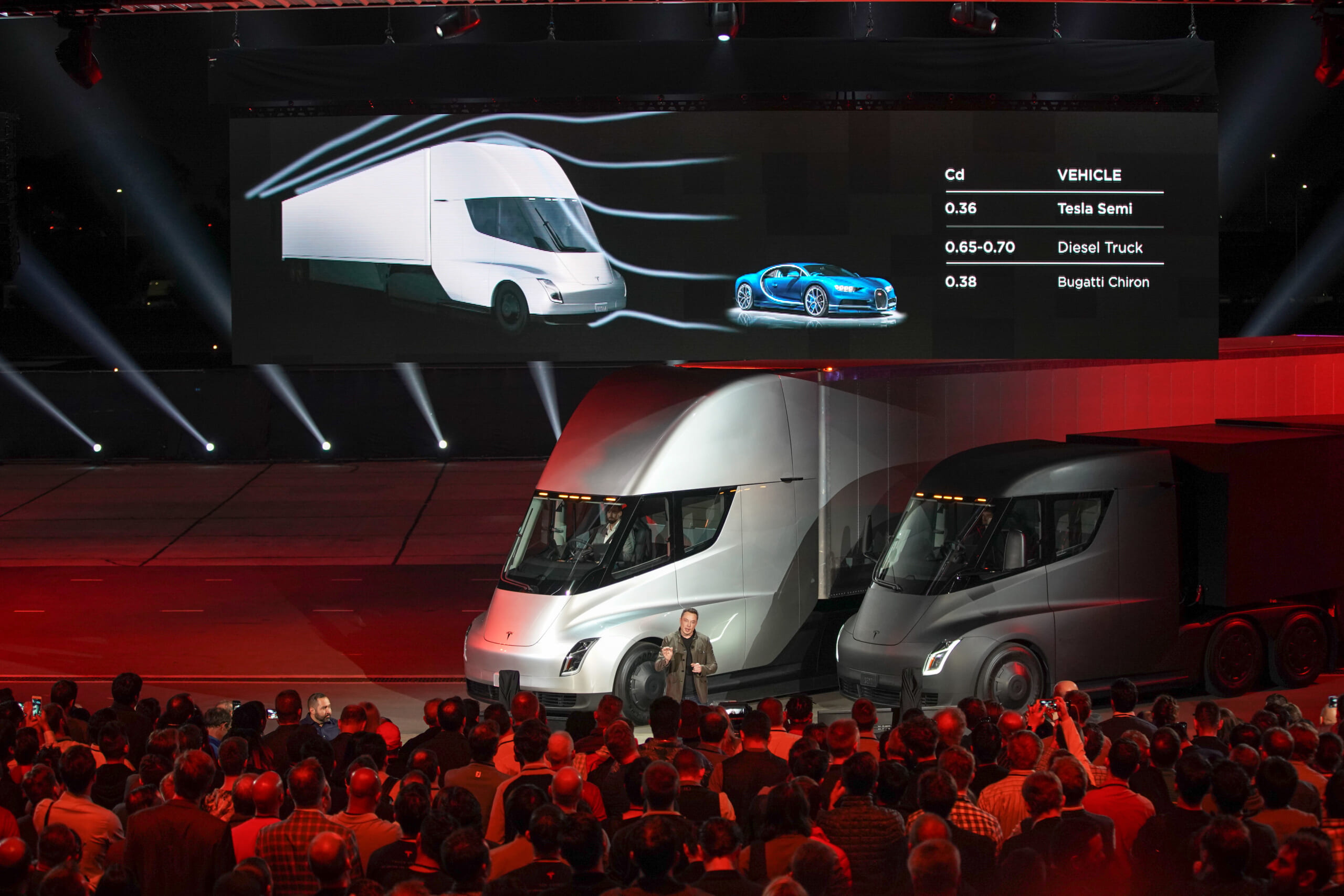
Pulling an 80,000-lb. load, it can still get to 60 mph in 20 seconds, which compares to about a minute for a diesel. And it can climb a steep 5 percent grade at 65 mph instead of clogging highways by slowing to 45 mph the way diesels do on such hills.
Musk said the truck has a coefficient of drag of 0.36, making it even more absurdly aerodynamic than the Bugatti Chiron, a $2.7 million supercar with a drag coefficient of 0.38.
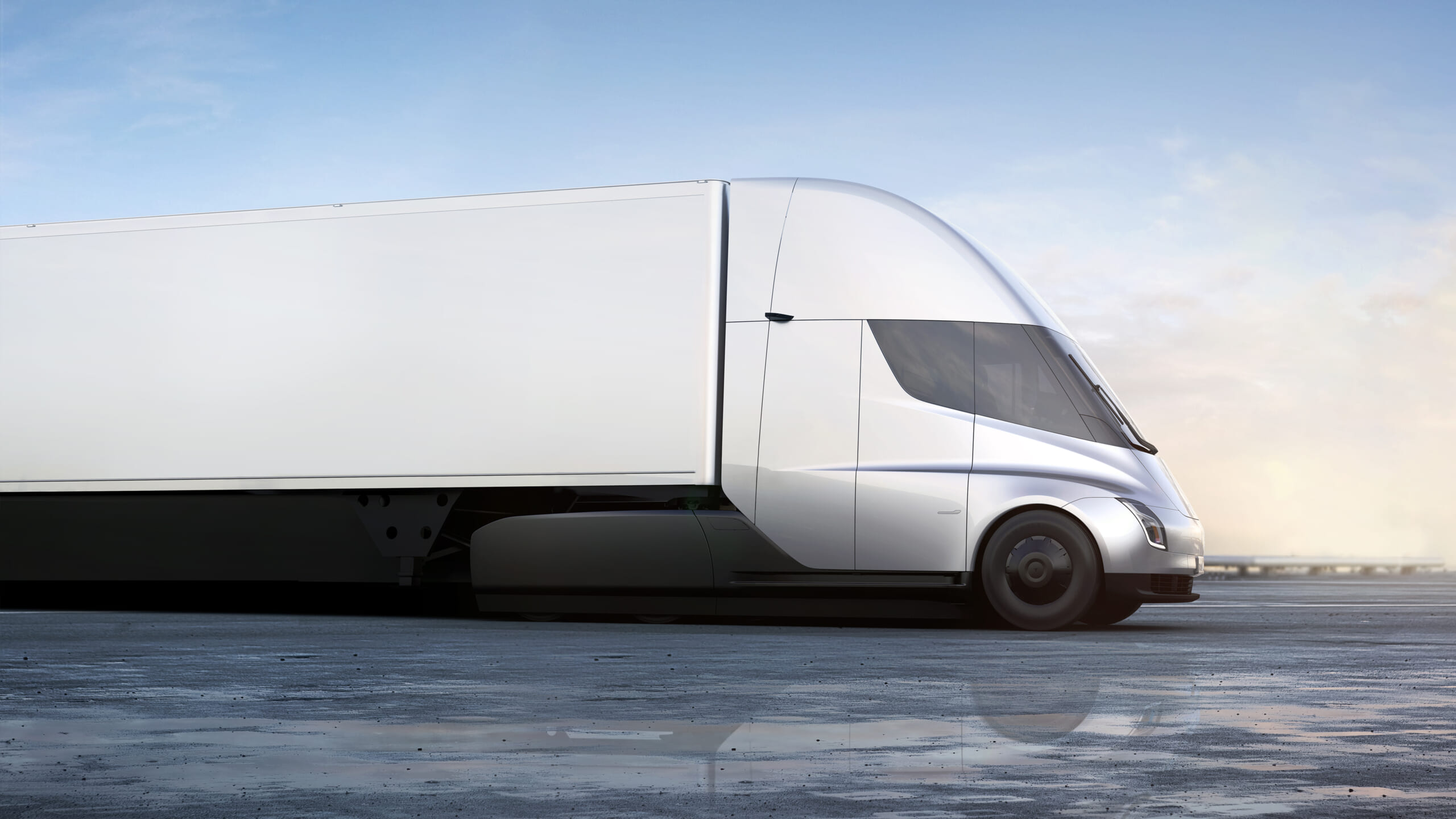
The Tesla Semi features Autopilot to help drive, just like the Model S and Model X and has a stability control system aimed at preventing jack knife crashes.
The center driving position gives the drive an unparalleled view of the road, though it may make picking up hitchhikers in the best cinematic fashion a thing of the past since there doesn’t appear to be a passenger seat.

There is no shifting, because the Semi has no transmission and its regenerative braking (which recovers 98 percent of kinetic energy on deceleration) helps the regular friction brakes last practically forever.

Tesla promises a 500-mile driving range with the Semi’s massive battery pack, and the company says it will build a new network of Megacharger recharging stations that promise an 80 percent recharge good for 400 miles in just 30 minutes.
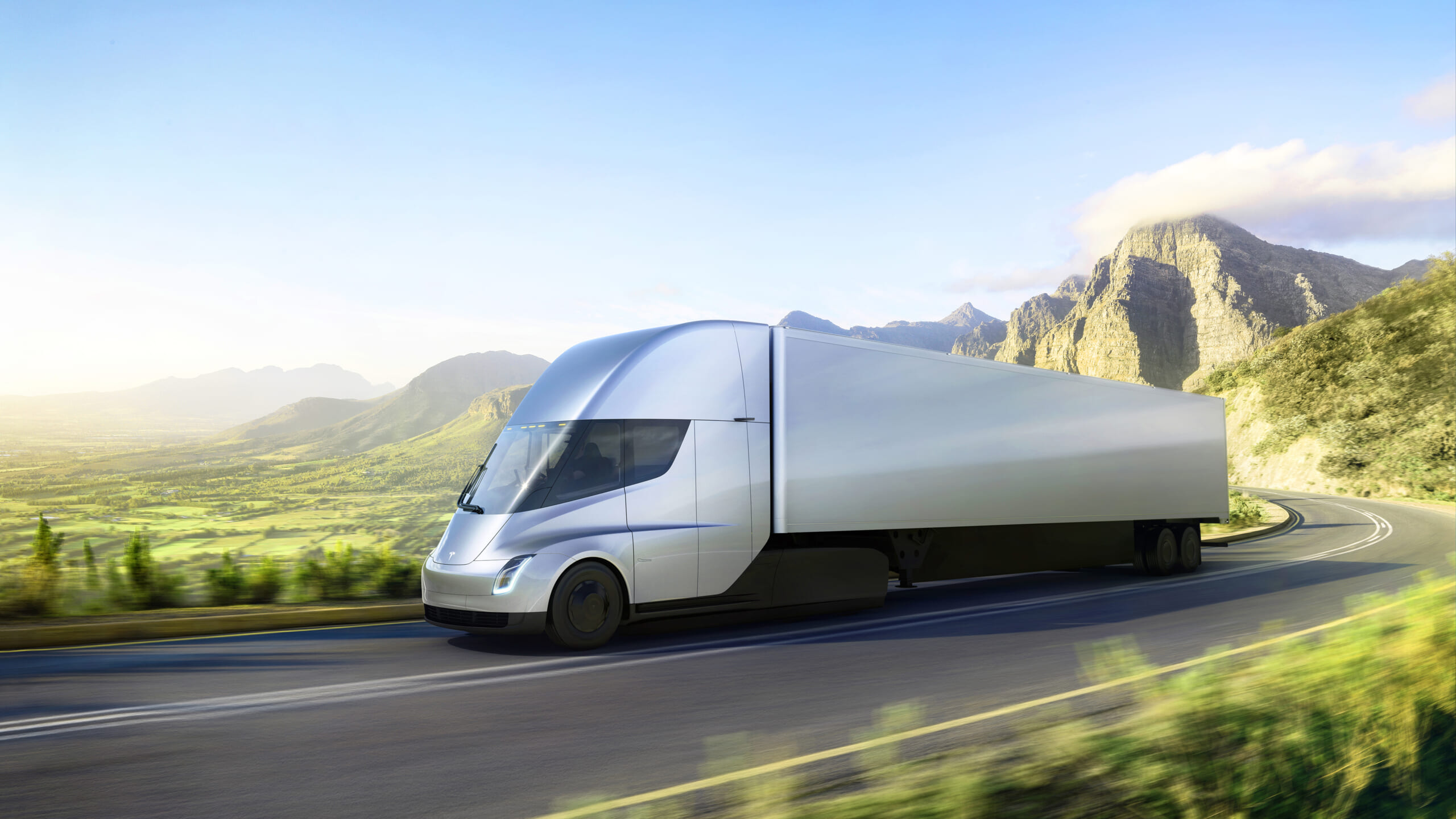
It might not be the massive 1.21 gigawatts of juice Marty McFly’s DeLorean needed for time travel in Back To The Future, but it will surely be a lights-dimming jolt of power that requires a substantial infrastructure to support, so we’ll have to see how construction of the Megacharger network proceeds.
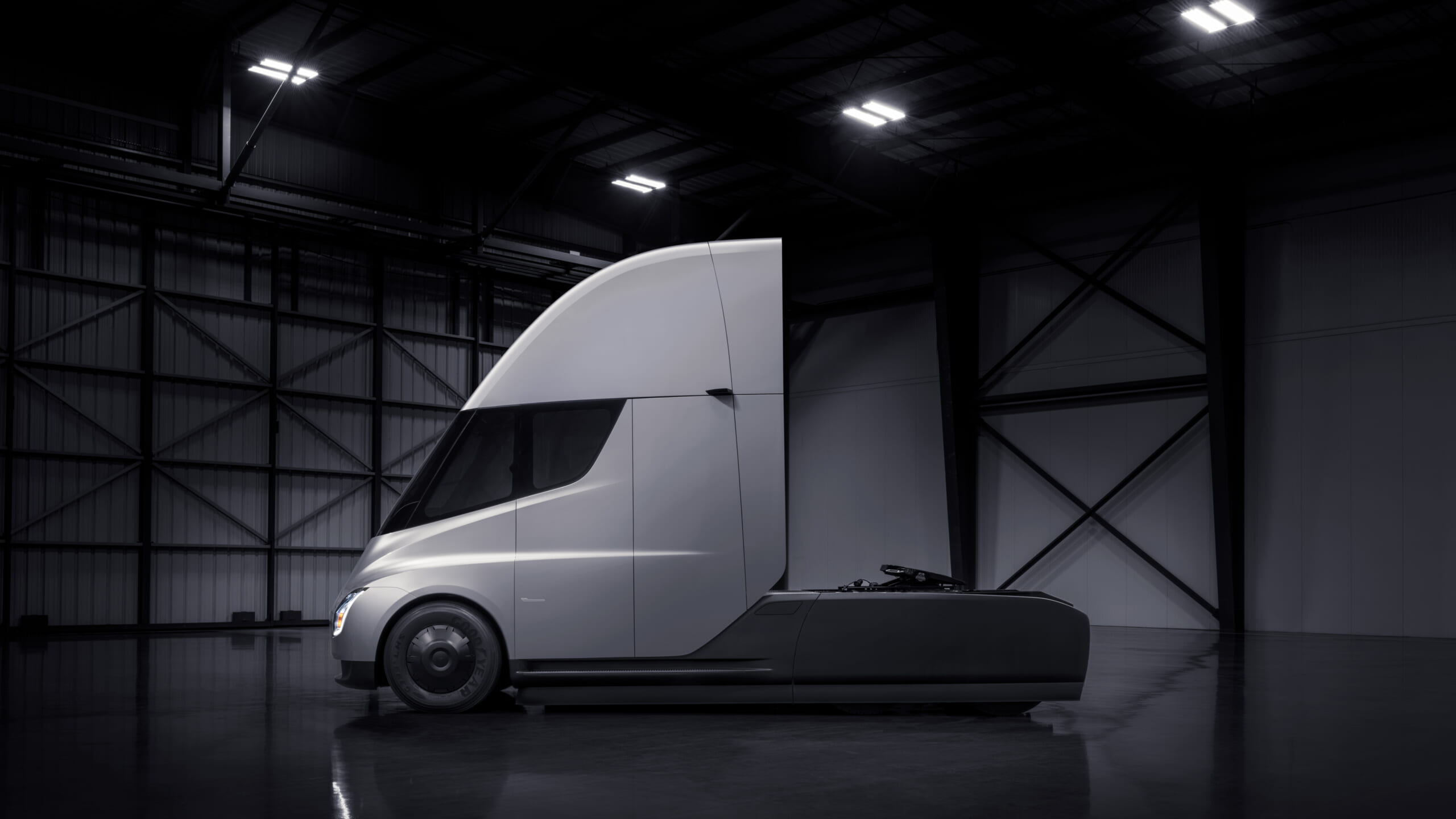
Tesla hasn’t announced the price of the truck, which is slated to roll out of the factory in 2019, but it will take your $5,000 now to place an order. Financial calculations show the Semi will save about $200,000 over the course of its projected million-mile life.
Judging from the numbers Tesla uses for its solar roof tiles and Powerwall, they will probably set the price at the amount saved ($200,000) over the price of a regular semi, which is about $150,000, so the Tesla Semi could come in at around $350,000.
